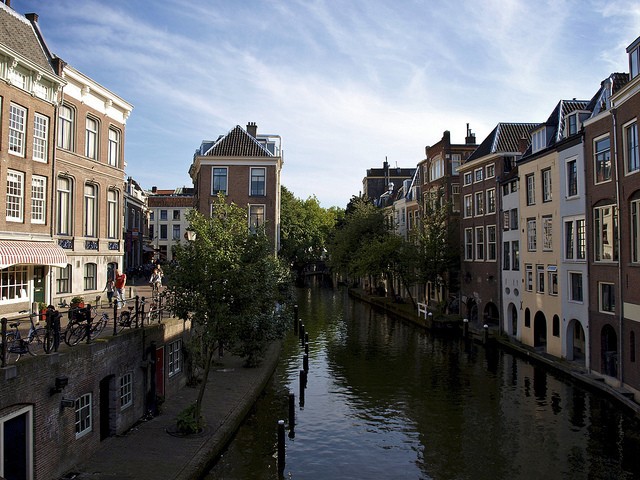Dutch City of Utrecht Announces Basic Income Experiment

If you are currently reading the last few chapters of our Billfold Book Club book The Subprimes — which we’re going to discuss tomorrow — you might be thinking about one of the big questions the story poses, which is “how can society succeed when there aren’t enough paying jobs to go around?”
The Dutch city of Utrecht may provide an answer. To quote The Independent:
The Dutch city of Utrecht will start an experiment which hopes to determine whether society works effectively with universal, unconditional income introduced.
You had me at “universal, unconditional income.” Tell us more!
Basic income is a universal, unconditional form of payment to individuals, which covers their living costs. The concept is to allow people to choose to work more flexible hours in a less regimented society, allowing more time for care, volunteering and study.
This is incredible. Delightful. It gives me hope for the world — and there have been a lot of things, this past week, that have given me hope for the world.
The city will be working alongside University College Utrecht to study what happens when they offer a group of people on welfare the opportunity to have basic income instead, without any of the rules and requirements associated with the current welfare system. They are running it like a scientific experiment, with a control group, and hoping to study what happens when people receive basic income instead of welfare.
Are there any drawbacks? The Independent quotes Alderman for Work and Income Victor Everhardt’s interview in DeStad Utrecht (which I cannot quote directly because I do not speak Dutch, so I’ll use The Independent’s translation):
What happens if someone gets a monthly amount without rules and controls? Will someone sitting passively at home [sic] or do people develop themselves and provide a meaningful contribution to our society?
Well, what if someone does sit passively at home? I can’t imagine Utrecht, or any city, has a shortage of people who want to develop themselves and contribute to society. Does sitting at home make you less deserving of food, shelter, and basic income?
I think a lot of people, if they were suddenly given a basic income that covered their basic living expenses, would take some time out to rest — especially if they’d been working very hard to make ends meet. I’m the kind of person who loves to develop herself and even I would consider a good three-week vacation.
There are also plenty of valid reasons for people to prefer staying at home, from mobility issues to social anxiety. It worries me that this basic income experiment might hinge on whether Utrecht’s citizens exhibit the appropriate amount of “get up and go.”
What do you think? Are you hoping Utrecht’s Basic Income experiment will be a huge success and might lead to Basic Income across the Netherlands and eventually the world? Or do you have reservations about this plan?
Photo credit: E. Dronkert
Support The Billfold
The Billfold continues to exist thanks to support from our readers. Help us continue to do our work by making a monthly pledge on Patreon or a one-time-only contribution through PayPal.
Comments